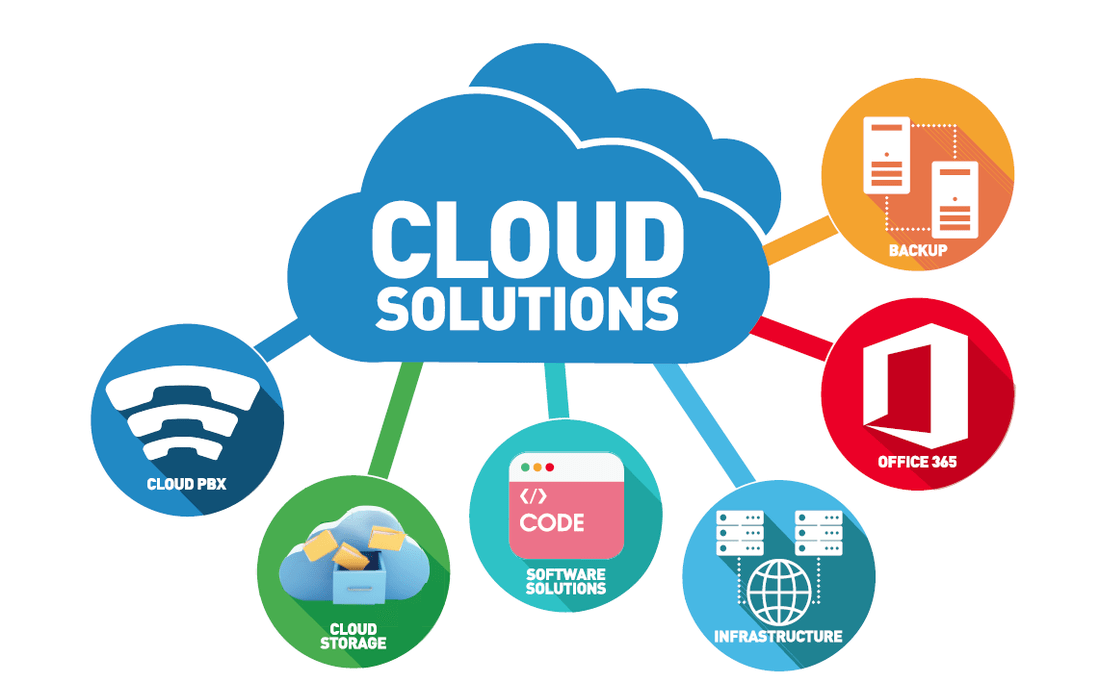Cloud Computing Solutions: Transforming Digital Landscape

Organizations and individuals always search for practical and scalable data management and storage solutions in today’s fast-paced digital environment. Cloud Computing Solutions have emerged as game changers, offering a flexible and secure platform for optimizing procedures and enhancing productivity. This article goes into cloud computing, its importance, advantages, and applications that have altered how we interact with technology.
Cloud Computing Solutions: A Brief Overview
Cloud computing is a computing paradigm that includes shipping laptop offerings via the Internet, allowing customers to access many things, including storage, databases, servers, software, and, more significantly, on-demand. The name “cloud” pertains to the Internet, and the offerings provided fall into 3 categories: Infrastructure as a Service, Platform as a Service, and Software as a Service are three types of cloud computing services (SaaS). Let’s take a deeper look at every one of those models.

Infrastructure as a Service (IaaS)
Infrastructure as a Service (IaaS) is a basic cloud computing concept that delivers virtualized computer resources via the Internet. IaaS companies can rent servers, storage, and networking infrastructure to businesses, removing the need for real hardware upkeep. Amazon Web Services (AWS) and Microsoft Azure are notable IaaS providers.
Platform as a Service (PaaS)
Platform as a Service is a cloud computing that goes beyond infrastructure and offers a complete development environment to build, deploy, and control applications. PaaS providers, like Google Cloud Platform and Heroku, facilitate developers in specializing in coding without worrying about underlying infrastructure management.
Software as a Service (SaaS)
Software as a Service permits customers to access and use software programs over the Internet on a subscription basis. Popular SaaS merchandise encompasses Microsoft Office 365, Salesforce, and Slack. Users can get the right to enter those programs from any tool with a web connection, presenting flexibility and convenience.
The Advantages of Cloud Computing Solutions

Scalability and Flexibility
Cloud computing provides scalability, allowing organizations to scale resources up or down based on demand. Its adaptability enables businesses to respond to changing needs while also reducing expenses.
Cost-Effectiveness
Cloud computing solutions is cost-effective, mainly for small and medium-sized businesses, as it removes the want for bodily equipment and lowers IT renovation expenses.
Accessibility and Remote Collaboration
With cloud-based solutions, data and applications are accessible from anywhere with an internet connection. This accessibility promotes seamless remote collaboration, increasing productivity and efficiency.
Data Security and Reliability
Cloud service companies invest significantly in data security measures, ensuring data encryption, regular backups, and disaster recovery solutions. This results in enhanced data security and reliability compared to traditional on-premises setups.
Automatic Software Updates
Cloud-based applications receive automatic updates from the service provider, sparing users from manual updates and assuring access to the most recent features and security patches.
Cloud Computing Solutions for Businesses

Cloud Storage and Data Management
Cloud storage services provide organisations with a safe and cost-effective way to store and manage data. Dropbox and Google Drive, for example, offer scalable storage options that suit various corporate requirements.
Cloud-Based Customer Relationship Management (CRM)
Cloud-primarily based total CRMs, consisting of Salesforce and HubSpot, empower organizations to effectively manipulate consumer relationships, sales, and advertising efforts.
These platforms centralize data and streamline communication for better customer engagement.
Cloud Infrastructure and Virtual Machines
Businesses can create a flexible and scalable IT environment tailored to their needs by leveraging cloud infrastructure and virtual machines from providers like AWS and Google Cloud.
Cloud-Based Communication and Collaboration
Cloud-based communication tools like Microsoft Teams and Slack allow team members to interact and communicate in real-time, irrespective of their physical locations.
Cloud Computing Solutions in Various Industries
Healthcare
Cloud computing has transformed healthcare by enabling secure patient record storage and sharing, encouraging telemedicine services, and facilitating research partnerships among medical experts.
Education
Cloud-based solutions in education have simplified data administration for educational institutions, improved e-learning experiences, and facilitated seamless communication between students and professors.
Finance
Financial institutions rely on cloud computing solutions for safe data storage, seamless transaction processing, and data analytics to make educated business choices.
E-Commerce
Cloud-based e-commerce platforms offer businesses a scalable and robust infrastructure to handle high website traffic during peak shopping seasons, ensuring a smooth shopping experience for customers.
Conclusion
In conclusion, cloud computing solutions have undoubtedly become game-changers in today’s fast-paced digital environment. Cloud services’ flexibility, scalability, and cost-effectiveness have revolutionized how organizations and individuals interact with technology. With Infrastructure as a Service (IaaS), Platform as a Service (PaaS), and Software as a Service (SaaS), businesses can access a wide range of computing resources and applications over the Internet.
Help us improve | Cloud Computing Solutions: Transforming Digital LandscapeHow Do You Like Our Post
0






